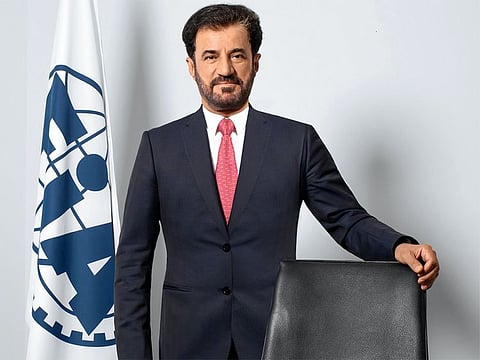FIA continues to push forward on innovation, sustainability, says President Mohammed Ben Sulayem
FIA World Motor Sport Council approves power unit regulations for 2026

The FIA World Motor Sport Council has approved the regulations for the 2026 Formula 1 Power Unit (PU) Regulations that will apply to the PUs to be developed and utilised from the 2026 season of the FIA Formula One World Championship. These regulations are the result of extensive research and development by the FIA, as well as collaborative consultation between the FIA and both incumbent and potential new PU manufacturers. The package includes Technical, Sporting and Financial Regulations.
The 2026 PU Regulations underline the FIA’s ongoing commitment to innovation and sustainability and come at a time of significant growth for Formula 1.
Push forward
FIA President Mohammed Ben Sulayem, said: “The FIA continues to push forward on innovation and sustainability – across our entire motor sport portfolio – the 2026 Formula 1 Power Unit Regulations are the most high-profile example of that mission.
“The introduction of advanced PU technology along with synthetic sustainable fuels aligns with our objective of delivering benefits for road car users and meeting our objective of net zero carbon by 2030. Formula 1 is currently enjoying immense growth and we are confident these Regulations will build on the excitement our 2022 changes have produced.
“I want to thank all of the FIA management and technical staff involved in this process for their diligence and commitment in working together with all of our Formula 1 stakeholders to deliver this. I also want to thank our WMSC members for their consideration and approval of these regulations.”
The World Motor Sport Council has also approved several changes to the 2022 and 2023 Formula 1 Technical Regulations to address two key safety concerns – the phenomenon of vertical oscillations (“aerodynamic porpoising”), and the safety standards for the roll hoops of Formula 1 cars.
Highest priority
Ben Sulayem said: “Safety is absolutely the highest priority for the FIA, and we have devoted significant time and resources to the analysis and resolution of the issue of porpoising. I have personally discussed this matter with all of the teams and drivers, and while of course there are some differences in opinion owing to varying competitive positions, it is very clear that the FIA has a duty to act and ensure that the drivers are not put at undue risk of injury as a result of this phenomenon.
“It was evident that an update to the requirements for the roll hoops was needed after the crash of Zhou Guanyu at Silverstone, and while this incident showed us all how remarkable the safety systems in Formula 1 are, it also proved once again that we must continue to innovate and pursue safety matters without compromise.”
Sign up for the Daily Briefing
Get the latest news and updates straight to your inbox


